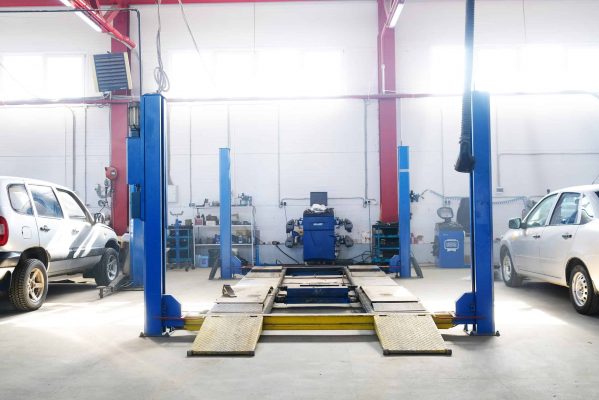
A laid-back attitude toward car and truck lift maintenance is a threat to the physical safety of everyone in your shop and becomes a threat to your business operations. All automotive lifts are mechanical devices. Therefore, they need ongoing inspection and maintenance. A lift that isn’t maintained regularly and in accordance with manufacturer instructions is likely to malfunction, break, and have untimely repair needs. These problems interrupt shop workflow and damage employee trust of the equipment, shop leadership, and the work environment.
Although many industry insiders have long touted that this all adds up to costing you and the shop more money in the long run, most overlook what is perhaps the worst result of foregoing regular car and truck lift maintenance and inspection activities in your shop: it encourages complacency while working with auto lifts, which inevitably leads to accidents and unnoticed issues that can result in unplanned OSH visits, citations, and abatement activities. That’s right – choosing not to do regular maintenance on your lifts in accordance with ANSI/ALI ALOIM standards can result in fines and citations under the General Duty clause – and for those in Canada, Provincial Health and Safety regulations. So, what can you do to help prevent automotive lift-related accidents, citations, and unplanned repairs? The answer is simple – keep on top of lift maintenance and annual inspection by planning!
The first step to keeping on top of lift maintenance is to develop a schedule identifying planned maintenance for each lift in your shop. A thorough planned lift maintenance program includes elements of regular ongoing evaluation and maintenance tasks that, at a minimum, follow national auto lift safety standards and the manufacturer’s recommendations for that particular lift model. ANSI/ALI ALOIM “Safety Requirements for Operation, Inspection, and Maintenance” describes requirements for automotive lift inspection, planned maintenance, repair maintenance, and training and maintenance frequencies. This standard, which took effect on January 1, 2021, also details requirements for lift operator training, owner responsibilities, and more – use this standard to ensure compliance across your lift safety program and as a guide to create maintenance plans for each lift in your shop.
Assess the qualifications of your inspection and maintenance vendor
As you know, most professionals in the automotive industry tend to agree that car and truck owners should leave vehicle repair and maintenance to the experts. The same position should be taken when it comes to planned and repair maintenance programs for automotive lifts. If your shop does not have the knowledge and experience in these areas, then call in an expert who is qualified to develop a thorough and compliant lift maintenance plan. Consider requiring up-front that when delivered, the provider must be willing and capable of stating in writing that the developed plan fully complies with the ANSI/ALI ALOIM standard and the manufacturer recommendations.
Once your shop’s planned maintenance program has been provided for your acceptance, it is time to integrate the plan into your shop’s regular activities and routines. A good practice to consider would be discussing the plan with everyone in the shop once it is adopted, or if you don’t feel comfortable talking about the topic, consider allowing your vendor to host a “tail-gate talk” styled event.
If lift inspections are not already an ongoing activity, now is the time to schedule regular lift inspections. Lift inspections should be performed by qualified lift inspectors at least annually. Firms with individuals having the experience and ability to qualify as a lift inspector can pursue lift inspector certification through ALI’s Lift Inspector Certification Program, or you can find an ALI Certified Lift Inspector near you. Either way, don’t forget to ask for a Check360 Certified Lift Inspection up front! Check360 inspections are backed by ALI as meeting all requirements outlined in the ANSI/ALI ALOIM:2020 standard and can only be provided by ALI Certified Lift Inspectors.
Finally, the Automotive Lift Institute offers a number of training materials for lift operators, including the Lifting It Right Online Training Certificate Course (available both in English and neutral Spanish) and its companion text, the Lifting It Right Safety Manual. These two safety training resources cover safe lifting and operation practices. Employees earning a certificate of completion should be able to exhibit safe lift operation skills and an understanding of the potential hazards associated with vehicle lifting.
Quick Links
Contact Us